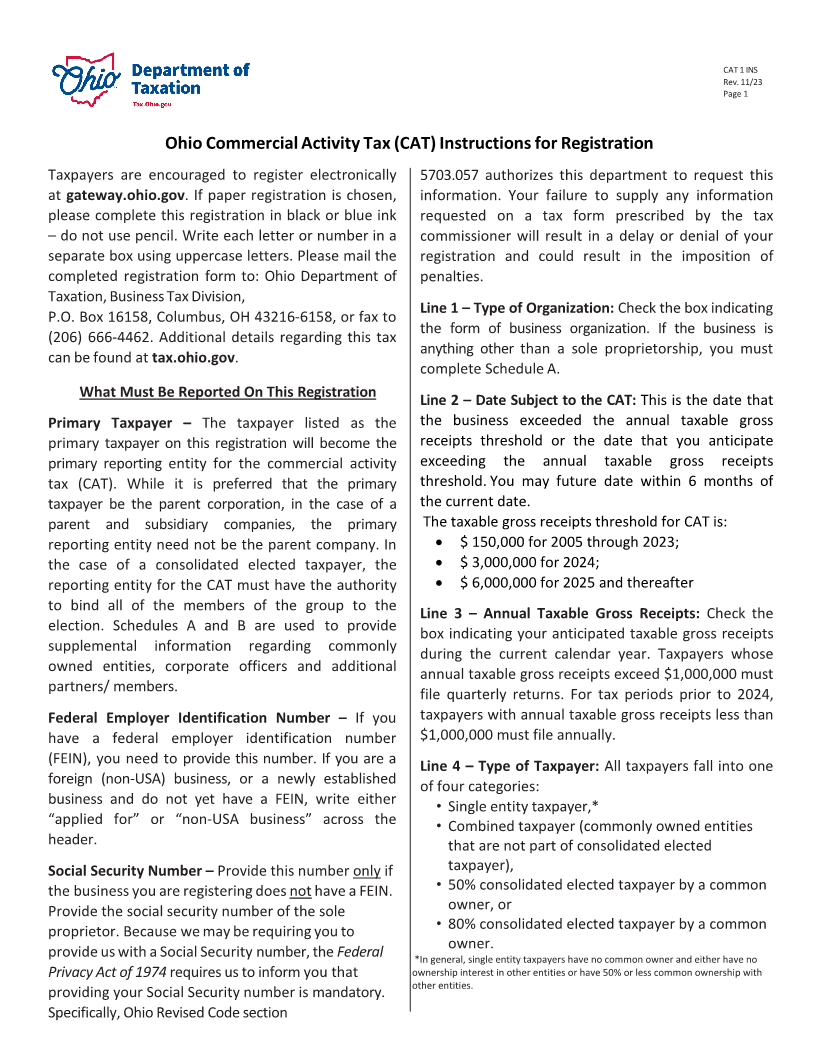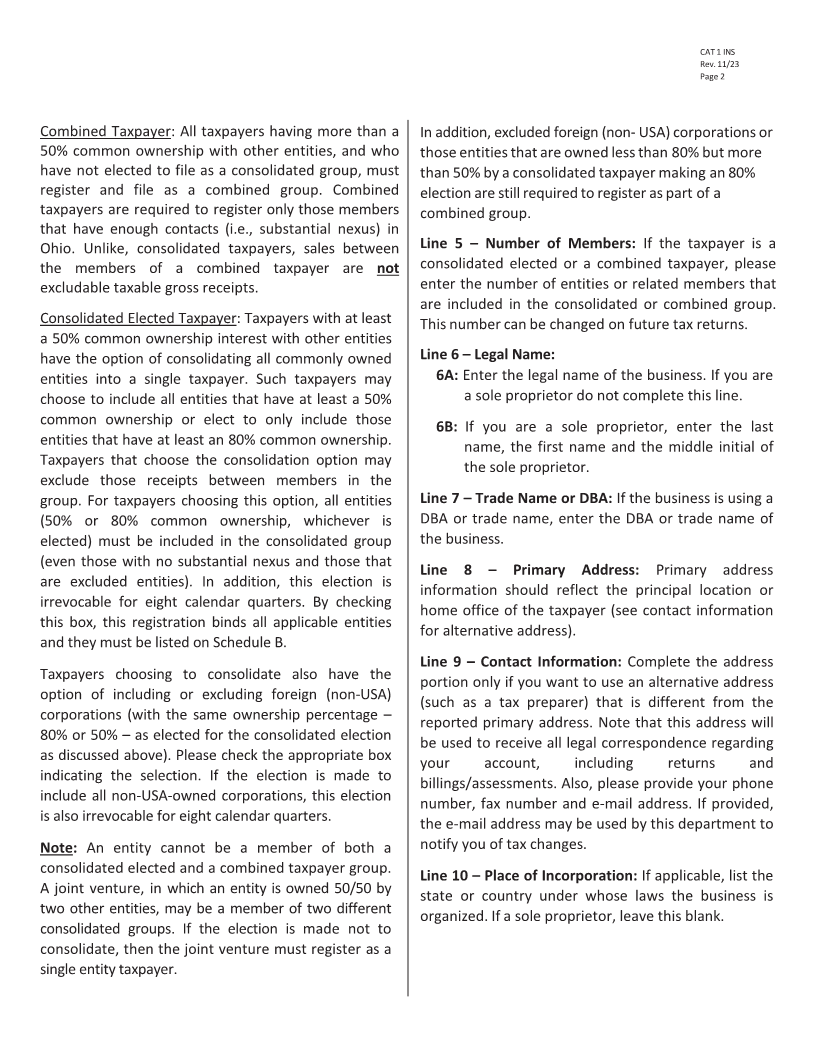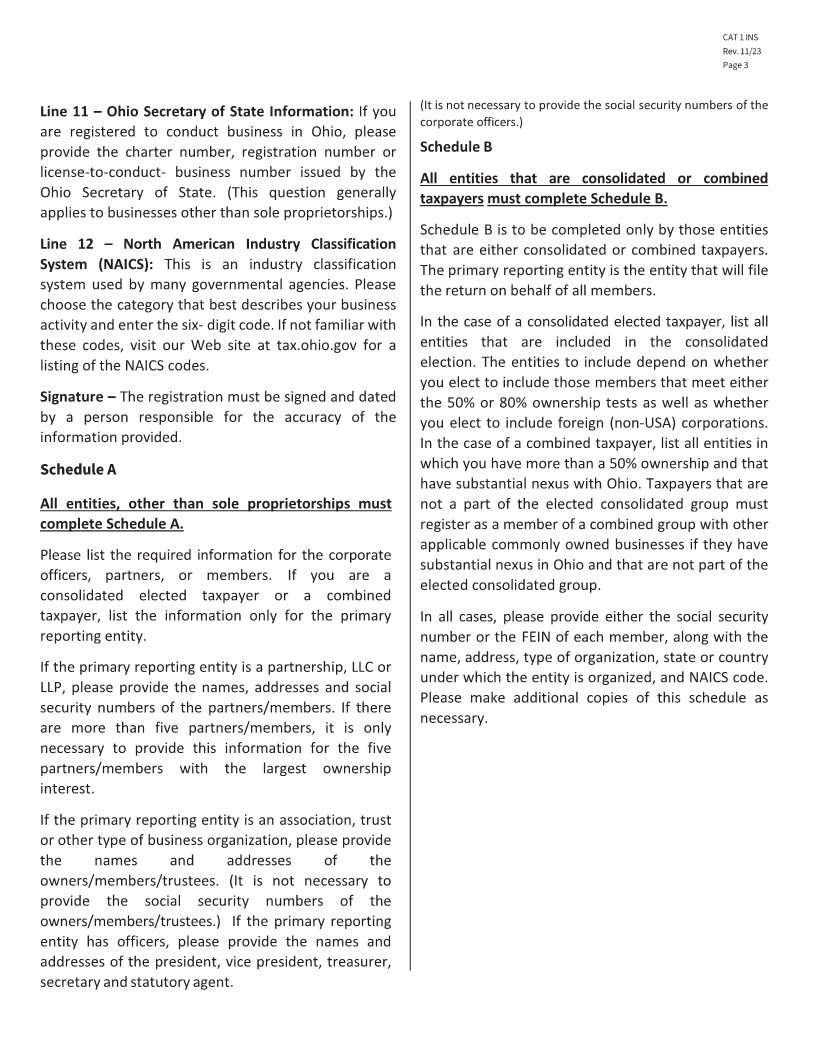
Enlarge image
CAT 1 INS
Rev. 11/23
Page 1
Ohio Commercial Activity Tax (CAT) Instructions for Registration
Taxpayers are encouraged to register electronically 5703.057 authorizes this department to request this
at gateway.ohio.gov. If paper registration is chosen, information. Your failure to supply any information
please complete this registration in black or blue ink requested on a tax form prescribed by the tax
– do not use pencil. Write each letter or number in a commissioner will result in a delay or denial of your
separate box using uppercase letters. Please mail the registration and could result in the imposition of
completed registration form to: Ohio Department of penalties.
Taxation, Business Tax Division,
Line 1 – Type of Organization: Check the box indicating
P.O. Box 16158, Columbus, OH 43216-6158, or fax to
the form of business organization. If the business is
(206) 666-4462. Additional details regarding this tax
anything other than a sole proprietorship, you must
can be found at tax.ohio.gov.
complete Schedule A.
What Must Be Reported On This Registration
Line 2 – Date Subject to the CAT: This is the date that
Primary Taxpayer – The taxpayer listed as the the business exceeded the annual taxable gross
primary taxpayer on this registration will become the receipts threshold or the date that you anticipate
primary reporting entity for the commercial activity exceeding the annual taxable gross receipts
tax (CAT). While it is preferred that the primary threshold. You may future date within 6 months of
taxpayer be the parent corporation, in the case of a the current date.
parent and subsidiary companies, the primary The taxable gross receipts threshold for CAT is:
reporting entity need not be the parent company. In • $ 150,000 for 2005 through 2023;
the case of a consolidated elected taxpayer, the • $ 3,000,000 for 2024;
reporting entity for the CAT must have the authority • $ 6,000,000 for 2025 and thereafter
to bind all of the members of the group to the
Line 3 – Annual Taxable Gross Receipts: Check the
election. Schedules A and B are used to provide
box indicating your anticipated taxable gross receipts
supplemental information regarding commonly
during the current calendar year. Taxpayers whose
owned entities, corporate officers and additional
annual taxable gross receipts exceed $1,000,000 must
partners/ members.
file quarterly returns. For tax periods prior to 2024,
Federal Employer Identification Number – If you taxpayers with annual taxable gross receipts less than
have a federal employer identification number $1,000,000 must file annually.
(FEIN), you need to provide this number. If you are a
Line 4 – Type of Taxpayer: All taxpayers fall into one
foreign (non-USA) business, or a newly established
of four categories:
business and do not yet have a FEIN, write either
• Single entity taxpayer,*
“applied for” or “non-USA business” across the
• Combined taxpayer (commonly owned entities
header. that are not part of consolidated elected
Social Security Number – Provide this number only if taxpayer),
the business you are registering does not have a FEIN. • 50% consolidated elected taxpayer by a common
owner, or
Provide the social security number of the sole
• 80% consolidated elected taxpayer by a common
proprietor. Because we may be requiring you to
owner.
provide us with a Social Security number, the Federal *In general, single entity taxpayers have no common owner and either have no
Privacy Act of 1974 requires us to inform you that ownership interest in other entities or have 50% or less common ownership with
other entities.
providing your Social Security number is mandatory.
Specifically, Ohio Revised Code section

